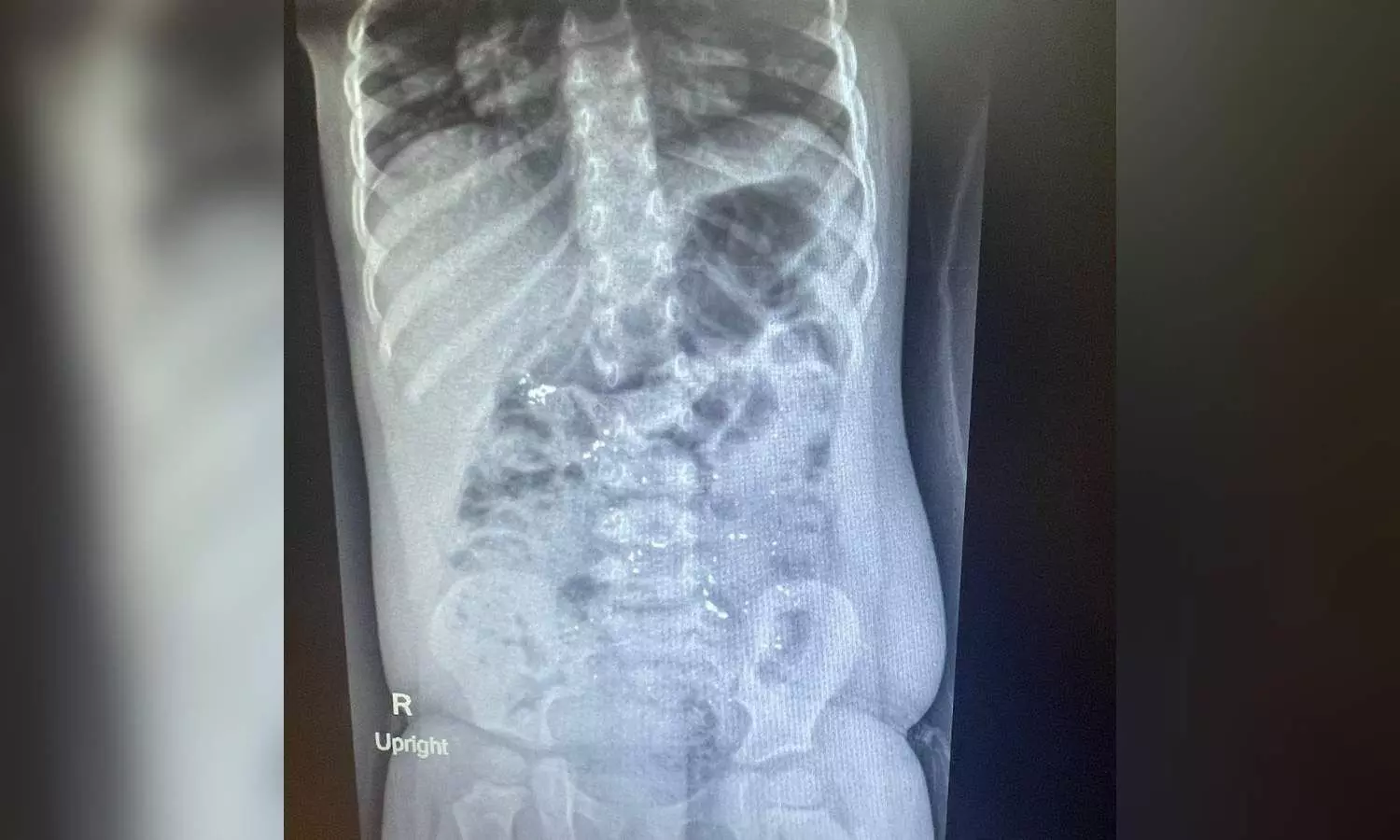Thermometer Mishap: How HCMCT Manipal Hospital Saved a 2-Year-Old from Mercury Poisoning

New Delhi: Doctors at HCMCT Manipal Hospital successfully treated a 2-year-old child suffering from mercury poisoning after accidentally ingesting mercury from a broken thermometer.
The incident occurred when the child was playing with a thermometer, which broke in his mouth, leading to the ingestion of mercury. Initially, the child showed no visible signs of toxicity, such as abdominal pain or vomiting, which made it challenging to assess the severity of mercury ingestion.
However, an abdominal X-ray conducted under close observation revealed a substantial amount of mercury dispersed throughout the bowel, posing significant health risks and necessitating immediate medical action.
Mercury poisoning is a serious condition that occurs when mercury—a highly toxic element—accumulates in the body. Exposure can happen through ingestion, inhalation, or skin absorption.
Mercury is particularly dangerous because it can affect critical organs, including the brain, kidneys, and nervous system, and can lead to long-term developmental issues in children. Symptoms of poisoning may include tremors, memory problems, kidney damage, and, in severe cases, respiratory failure.
The pediatric team, led by Dr Sufla Saxena, Head of Pediatric Gastroenterology and Hepatology, managed the case with precise medical intervention. Initial conservative treatment with laxatives failed to clear the mercury, prompting an urgent colonoscopy. The procedure identified mercury throughout the large bowel and appendix, necessitating a comprehensive bowel lavage to flush it out.
Commenting on the successful procedure, Dr Sufla Saxena stated, “Acute or chronic mercury exposure can cause adverse effects during any period of development. Mercury is a highly toxic element and can have devastating effects on critical organs such as the heart, central nervous system, and kidneys. With early diagnosis and opting for the procedures at the right time, we were able to prevent the dangerous effects of mercury exposure and ensure the child’s recovery without complications.”
The child was discharged the next day, with a follow-up X-ray confirming the complete clearance of mercury, eliminating the need for chelation therapy.


